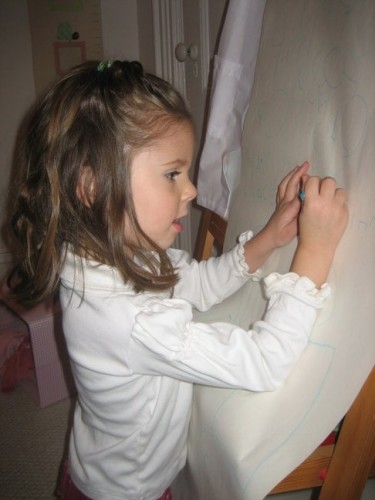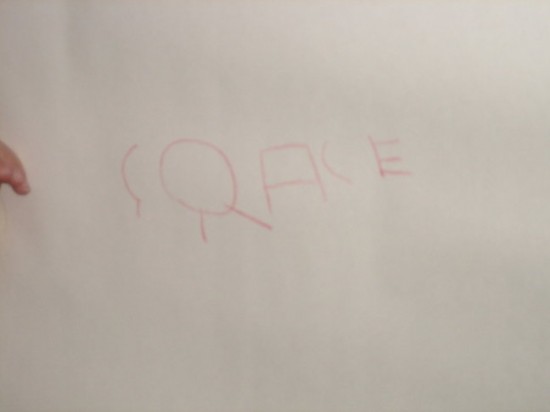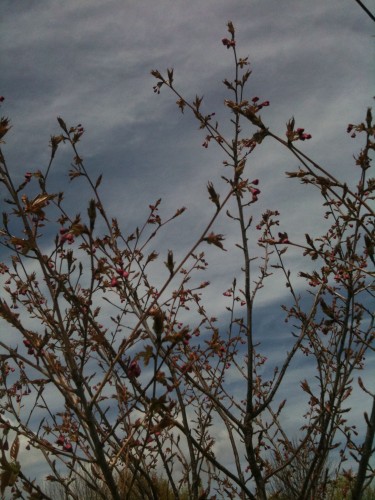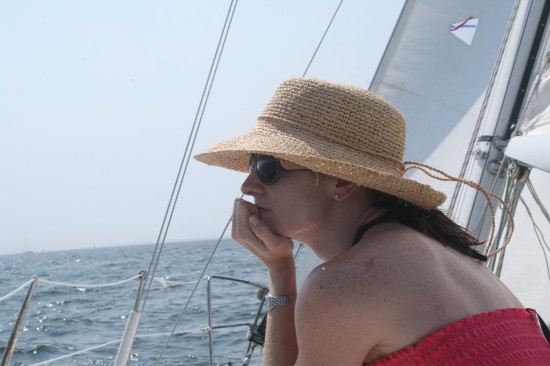
Grace tonight told me that they were studying poetry at school, and asked if I still had the poems she had written for me ages ago. I did, I said. As she was getting into bed, she caught a glimpse of this framed poster on her wall, and stared at it for a minute. I wondered what she was thinking. “Is that a poem, Mummy?” she asked me. “Why yes, Grace, it is,” I answered, a smile wrestling with the tears the sprang to my eyes.
A poem I’ve long loved, in fact. A poem that was the epigraph to my college thesis. A poem that I wrote on a poster that I printed for her after she wrote her name for the first time. A poem that’s been hanging, large and framed, on her wall for over 3 years.
I thought of that choice, 14 years ago, to include this poem (with a photograph of Georgia O’Keeffe‘s naked breasts and hand) in my thesis, which was about the mother-daughter relationship. Thought of the ways in which I was then anticipating now, this very girl at my feet, this moment when I was the mother, and I had that dizzying experience where time kaleidoscopes into a single radiant moment.
“Will you read it to me, Mummy?” she asked, settling down into a cross-legged position on her floor, looking up at me beseechingly.
“Of course I will, Gracie.” And I began. And more than once, I had to pause to regain my composure and to swallow back the tears. Reading this poem to my eager daughter while looking at pictures of her writing her very first word. Pictures of her first word, her name. Grace. grace. Dear, dear universe. Thank you. Words, poetry, pen on paper, names, spelling, grace.
Gracie, my grace.
Spelling (Margaret Atwood)
My daughter plays on the floor
wit plastic letters,
read, blue, & hard yellow.
learning how to spell,
spelling,
how to make spells.
*
and I wonder how many women
denied themselves daughters,
closed themselves in rooms,
drew the curtains
so they could mainline words.
*
A child is not a poem,
A poem is not a child.
There is no either/or.
However.
*
I return to the story
of a woman caught in the war
& in labor, her thighs tied
together by the enemy
so she could not give birth.
Ancestress: the burning witch,
her mouth covered by leather
to strangle words.
A word after a word
after a word is power.
*
At the point where language falls away
from the hot bones, at the point
where the rock breaks open and darkness
flows out of it like blood, at
the melting point of granite
when the bones know
they are hollow & the word
splits & doubles & speaks
the truth & the body
itself becomes a mouth.
This is a metaphor.
*
How do you learn to spell?
Blood, sky, & the sun,
your own name first,
your first naming, your first name,
your first word.



